Books
Crime and Thriller 101 with Henry Sutton
One of the reasons we created Dead Good was because of the passion and love we have for crime fiction. It’s arguably the fastest growing genre and contains some of the world’s best authors. But you’ve got to start somewhere and with so many books available it’s hard to know where.
Henry Sutton teaches the University of East Anglia’s master’s module ‘The Writing of Crime Thriller Fiction’ and he’s also course director of UEA’s MA in Creative Writing: Prose Fiction. He also practices what he preaches and is a successful crime author in his own right. Who better to divulge pearls of wisdom on the landmark books that have changed the face of crime fiction? Here’s Henry Sutton’s Crime and Thriller 101.
10 Novels That Define the Genre
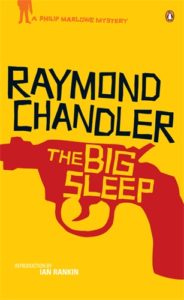 The Big Sleep by Raymond Chandler (1939)
The Big Sleep by Raymond Chandler (1939)
Okay, Dashiell Hammett might have originated the hard-boiled prose style and changed the face of detective fiction forever, but Chandler added an Edwardian literariness, and the idea that the scene counted for more than the whole. If in doubt about what to do next with the plot, he maintained, have a guy burst into the room with a gun. In many ways his stance was visual, endlessly filmic, and impossible to imitate without sounding cliched.
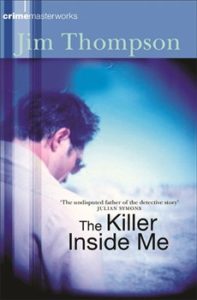 The Killer Inside Me by Jim Thompson (1952)
The Killer Inside Me by Jim Thompson (1952)
Thompson defined noir, both professionally and sadly personally. Interestingly he started out writing so-called literary novels, before turning to what was then termed pulp. The French recognised his existential core, championing him to the end. A Marxist during the McCarthy era, Thompson was both politically and artistically brave. And in many ways he was always far too modern for his native American audience, producing the devastatingly bleak and brutal The Killer Inside Me in the early, deeply conservative 1950s.
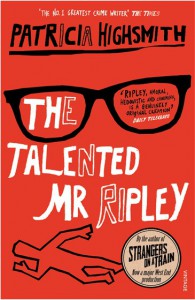 The Talented Mr Ripley by Patricia Highsmith (1955)
The Talented Mr Ripley by Patricia Highsmith (1955)
‘Art essentially has nothing to do with morality, convention or moralising,’ Highsmith notoriously stated. And boy did she stick to her principles. Again, it was the Europeans, and the French in particular, who recognised her psychological acuity. No one creates empathy for a killer quite like Highsmith, with Tom Ripley standing out as not just a fully rounded, albeit highly disturbed individual, but also a very bright and entertaining one. The psychological thriller has never been bettered.
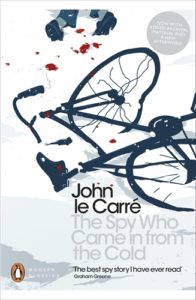 The Spy Who Came in from the Cold by John le Carré (1963)
The Spy Who Came in from the Cold by John le Carré (1963)
John le Carré has created a very profound body of work on the premise of the individual against an invariably corrupt or compromised state. Personal conflict derives from compromised positions. He also recognised the need for strong characterisation and narrative thrust. And while his plots are ingenious, he never dupes the reader. Though he maintains it was almost by accident, or at least the design of others, that he chose the spy thriller as his medium, he has made it his own.
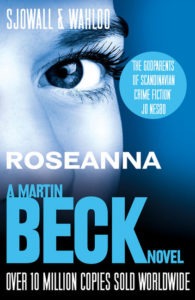 Roseanna by Maj Sjöwall and Per Wahlöö (1968)
Roseanna by Maj Sjöwall and Per Wahlöö (1968)
The modern police procedural owes everything to a couple of Swedish intellectuals, who wanted to expose the raw underbelly of a blinkered Scandinavian welfare state. But with their quiet, troubled homicide detective Martin Beck, they also paved the way for not just a non-heroic kind of protagonist, but also a vastly more realistic sense of operational duties. Their genius was to make all this utterly gripping and thrilling. With Roseanna, the first of the 10 book series, they hit the ground running.
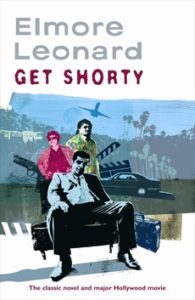 Get Shorty by Elmore Leonard (1990)
Get Shorty by Elmore Leonard (1990)
It’s hard not to think of Chili Palmer as John Travolta; so aptly did the actor portray the loan shark who wanted to be a player in the movie business. Get Shorty is both a brilliantly funny, brilliantly plotted crime novel, and a marvellous send-up of La La Land. Humour in the crime genre seldom comes off cleanly, however Leonard perfectly manages that balance between laughter and pain, light and darkness.
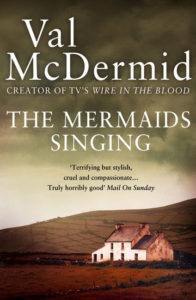 The Mermaids Singing by Val McDermid (1995)
The Mermaids Singing by Val McDermid (1995)
McDermid looked to TS Eliot for the inspiration and the epigraph to her hauntingly violent thriller that introduced the world to clinical psychologist and profiler Tony Hill. With DI Carol Jordan in charge of some useless male detectives, she also made gender, and not actually violence, the starring issue. It’s a disturbing read all right, however the author’s intelligence, integrity and resourcefulness provide a very original (for the time) thriller with lasting power and value.
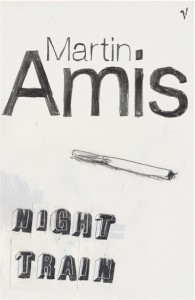 Night Train by Martin Amis (1997)
Night Train by Martin Amis (1997)
Amis loves a good riff, and his humour is legendary, and there are many lines in here that Elmore Leonard would be proud of. Needless to say Leonard is a huge influence in this homage really to east coast cop speak. But what begins as an investigation into a suspicious death morphs into an unanswerable question about individuality, belonging and the meaning of life. Though only pint size, it punches way above its genre and metaphorical weight.
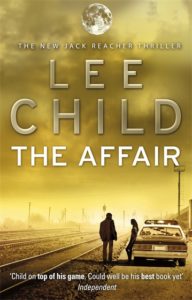 The Affair by Lee Child (2011)
The Affair by Lee Child (2011)
While this might not be Lee Child’s most gusty novel, it’s his most erotically charged. Yeah! Well we all knew Jack Reacher had stamina. Nevertheless, this most modern of modern day knight errants, still surprises and still delights – testament to the durability, universality and popularity of Child’s extraordinary creation. It’s not just Reacher’s reactions that are so rewarding to behold, but poetic clarity of the prose that they are set in.
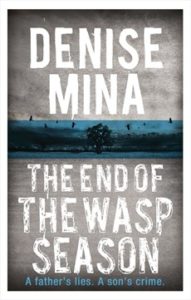 The End of the Wasp Season by Denise Mina (2011)
The End of the Wasp Season by Denise Mina (2011)
Where will the police procedural go next is a question that’s often asked, especially in the light of advancing forensic science and new technologies. With this startlingly socially and emotionally perceptive novel Mina suggests a way, and that’s back to where all good fiction originates. Chandler resolved, all those years ago to ‘get a bit more interested in people than in violent death’. He also declared: ‘When a book, any sort of book, reaches a certain intensity of artistic performance, it becomes literature.’ Mina, like Chandler, recognises that to give any novel life, of whatever genre and intent, you have to prioritise people over action.
Further Reading: What Does A Book Editor Do?
Let us know your defining crime books in the comments below!
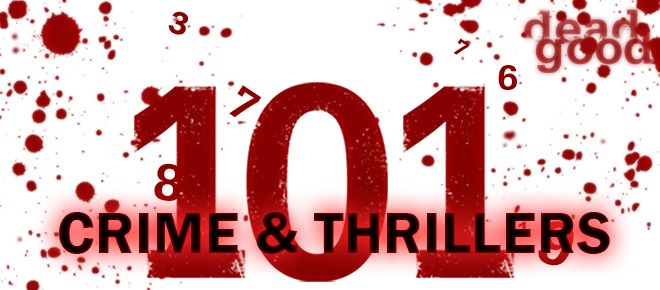

Please note: Moderation is enabled and may delay your comment being posted. There is no need to resubmit your comment. By posting a comment you are agreeing to the website Terms of Use.